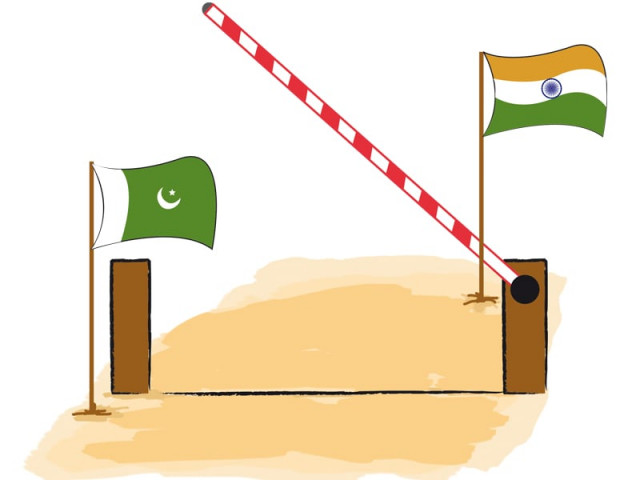Diplomatic reciprocals
Both India and Pakistan have a long history of reciprocal mutual expulsions

ILLUSTRATION: TALHA AHMED KHAN
Both countries have a long history of reciprocal mutual expulsions and the entire incident is strongly reminiscent of the days of the Cold War between western nations and the Soviet Union, when both sides played one another off in terms of espionage.
The difference today is that the conflict between India and Pakistan is currently set to a high heat, with exchanges of fire across the Line of Control and the Working Boundary. Indian soldiers have recently allegedly died in the conflict, as have Pakistani troops and civilians in the near past. Fatalities and live firing were exceedingly rare in the Cold War, but increasingly common in the protracted hostilities currently playing out on our eastern borders. This latest diplomatic incident must not be used by India to up the ante, and Pakistan would be well advised to stick to its line of constructive restraint. Cool heads must prevail and pragmatic statesmanship be to the fore on the part of both our leaders and the diplomatic services.
Published in The Express Tribune, October 29th, 2016.
Like Opinion & Editorial on Facebook, follow @ETOpEd on Twitter to receive all updates on all our daily pieces.














COMMENTS
Comments are moderated and generally will be posted if they are on-topic and not abusive.
For more information, please see our Comments FAQ